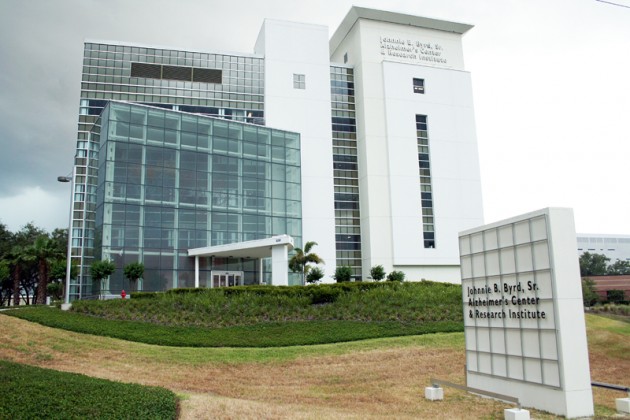Legislation makes USF, Byrd Institute merger official

As the Johnnie B. Byrd Sr. Research Institute awaits a decision to see if they will receive a five-year research grant, legislative calls for restructuring provide an opportunity to relieve some of the Institute’s financial woes.
The Higher Education Appropriations Conforming Bill (Senate 1696), signed by Gov. Charlie Crist on June 2, formalized the partnership between USF and the Institute. The bill requires both USF and the Institute to complete tasks before the start of the upcoming fiscal year.
By July 1, the Byrd Institute’s “unexpended balances, record, functions, facilities, and assets” must be transferred to USF under the supervision of the Board of Directors.
Dr. Stephen Klasko, chief executive officer at the Institute and dean of the College of Medicine, said his college oversees about 19 institutes.
This transfer means that the Byrd Institute’s budget will be included in the College of Medicine’s budget.
“Now, I can use USF Health money or USF money as part of our initiative or I can move people back and forth,” Klasko said. “It just makes it a lot easier. If there’s a faculty member in medicine or nursing that’s doing Alzheimer’s research, then the Byrd just becomes a building, because it’s still USF Health.”
Under the bill, the Institute’s board of directors will be required to ensure state funds are handled appropriately.
As part of his role as CEO, Klasko said he will report to the board.
“What makes it a little different is that now it’s an institute within USF — the overall USF Board of Trustees (BoT) is the final board anyhow,” he said.
The BoT will appoint four people to serve on the Institute’s board. These appointees will then appoint an advisory council.
Klasko said the council will assist the Institute in finding funding by working with the community through philanthropy efforts as well as work with the Legislature.
“That will be actually more of an advocacy board,” he said.
The bill also asks USF President Judy Genshaft or “her designee” to appoint a chief executive officer at the Institute. However, Klasko said he will retain the title.
Klasko will be required to prepare an annual report that includes the Institute’s research, clinical, education and financial accomplishments.
“Let me give you an example,” he said. “In the last six months we have obtained about $5 million in research grants. We will take each of the missions of Byrd, and the annual report will basically speak to each of those missions.”
Prior to the USF-Byrd partnership, the Institute was receiving $15 million a year in state funding when the Institute opened about eight years ago.
The Institute is now spending its available funds of $8 million dollars.
Klasko said that amount decreased each year and that the Institute was getting about $7.5 million yearly up until two years ago. The Institute has not received funding for the last two years.
Last year, the Institute chose not to receive a $7.5 million proposal by the Legislature because the administration wanted to remain independent of the University. The proposal required the Institute to merge with USF in order to receive the funds.
While the new partnership allows the Institute to receive University funds, Klasko said the Institute will need state funding to fulfill its mission of being a statewide research institute.
“We spend money down in Miami to support that part of the Alzheimer’s research center … if we go much longer without (state money), we’re not going to be able to support the other aspects of Alzheimer’s in the state,” he said.
The Institute received a five-year grant in 2004 that designated the Institute as an Alzheimer’s Research Center (ADRC). The grant provides $1.4 million each year.
The Institute must re-apply for the grant every five years to keep the title.
The National Institute of Aging (NIA) reviews applications and determines which institutes will receive the ADRC grant. The Byrd Institute submitted its application May 5 and will learn of the decision in the fall.
Only 16 ADRC grants are awarded throughout the country and the Byrd Institute is the only recipient in Florida.
Dr. Clifton Gooch, USF chair of neurology, said the USF-Byrd merger helps both entities lead Alzheimer’s research in a unified effort.
Because of a lack of funding, the Institute made changes within its structure including reducing staff by nearly 50 percent last year. The reduction was made possible by the USF-Byrd partnership, which allowed duplicate departments to merge.
“One way to look at it is that without finding some other additional source of funding or making radical changes, the funding of the Byrd Institute will run out, because it’s not being replenished,” he said.






